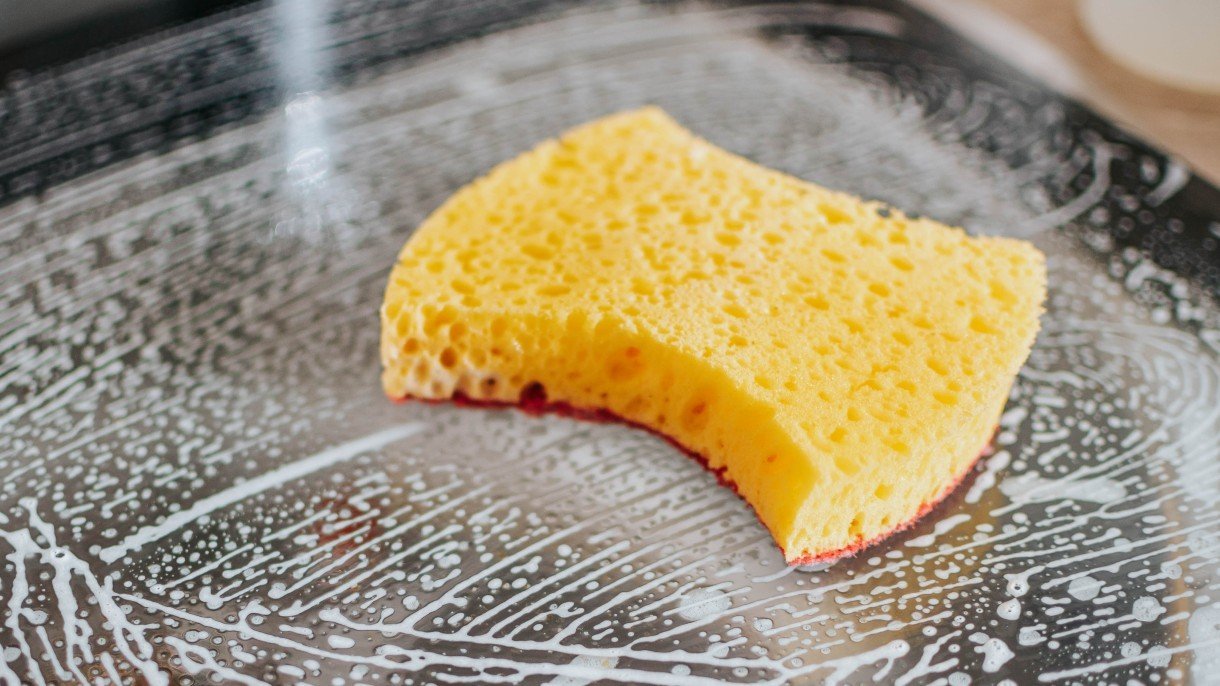How Long Does It Take for a Kitchen Sponge to Decompose

Truth be told, most of us heavily depend on sponges for our kitchen cleaning needs. But as much as these tools are helpful, they raise serious sustainability concerns.
For instance, can they even decompose? And if so, how long does it take? Well, those are the questions that we are going to answer today.
How long does it take for a kitchen sponge to decompose?
Can you compost kitchen sponges?
Since only cellulose kitchen sponges can biodegrade, they are the only ones that you can compost.
However, there is one thing you must keep in mind – standard cellulose sponges are soaked in chemicals that reduce bacterial growth. So for best results, you should purposely use sponges that are 100% natural.
Can you recycle plastic kitchen sponges?
While recycling plastic sponges is difficult, you do have a couple of options.
For one, you could use TerraCycle’s mail-in campaign for recycling sponges. But you should know, it only accepts one brand of sponge.
Alternatively, you could buy one of their zero-waste boxes and use them to ship off your sponges for recycling. However, while a good number of these boxes do accept sponges, they are quite pricy.
What alternatives are there to kitchen sponges?
If you are finally ready to switch from sponges to more sustainable options, here are a few alternatives you could try out:
Fabric cloths
This traditional option is as effective as it is eco-friendly.
Companies like Full Circle are even making that are stitched in a way to allow for easy removal of stuck dirt. These can comfortably be used for dishwashing and wiping countertops. You can even cut them up into smaller pieces that can completely replace your sponges.
Loofah sponges
Apart from scrubbing yourself in the bathroom, you can also loofah sponges to clean dishes. All you have to do is cut them down to a convenient size and you should be good to go.
And if you really want to go natural, you could grow your own loofah plant. Known as Luffa acutangula, this plant grows well in warm climates.
After it’s ready to be harvested, all you have to do is pluck it, soak it until its skin comes off, and dry it.
Walnut/coconut scrubbers
These scrubbing pads are usually 100% plant-based and can be comfortably added to your compost heap.
Unsponges
These popular sponge alternatives are usually made of cotton or burlap. They are washable, reusable, and heavy-duty.
It is easy to accidentally get the ones stuffed with synthetic materials though. To avoid this, always remember to countercheck their labels.
Swedish dishcloths
These dishcloths were invented by a Swedish engineer and are made of cotton and cellulose. They are absorbent, biodegradable, and easy to dry. As such, they offer a perfect blend of functionality and sustainability.
Use your sponges for as long as possible
Whether you are using plastic sponges or more sustainable options, it is always best to use them for as long as possible.
Wash them with hot water, bleach your dish sponges to sanitize them when necessary, and dry them as thoroughly as you can. This way, you can save the environment while keeping those pesky germs in check!
